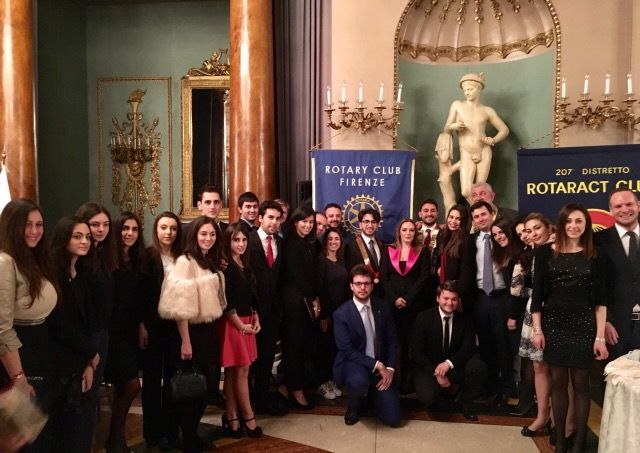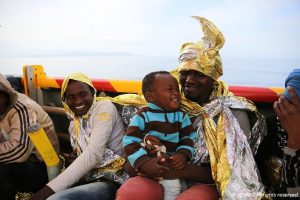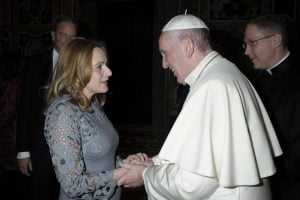Il 13 Marzo ho presenziato alla cena conviviale del Rotaract FI, Rotary Club e Interact. L’evento organizzato nell’incantevole sede di Palazzo Borghese è stato una occasione perfetta per poter raccontare la genesi di MOAS, le sue attività, i salvataggi in mare e le emozioni provate nelle fasi di ricerca e soccorso.
Proprio il 13 Marzo ricorreva l’inizio della “settimana mondiale del Rotaract”, che fa riferimento alla nascita del Rotaract avvenuta nel 1968 negli States. Specificatamente il Rotaract Club Firenze -nato il 18 marzo 1968- rappresenta il primo Club in Europa, quindi in Italia, ed il terzo nel mondo.
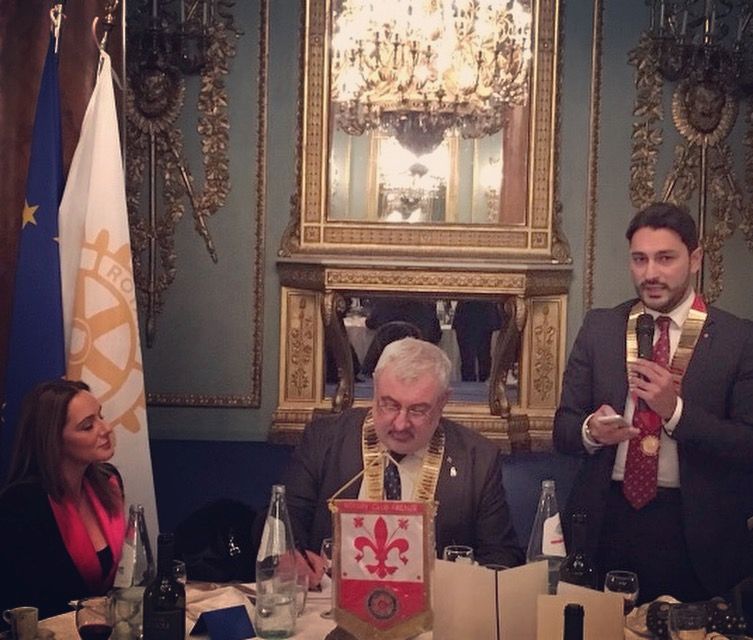
Mi ha resa felice l’attenzione e l’emozione dimostrate dai presenti nei confronti di MOAS che trasparivano durante la proiezioni dei video.
Carlo Francini Vezzosi, Presidente Rotary Club Firenze, ha iniziato la serata suonando la campana sul nostro tavolo e spiegando che era stata donata dal Rotary Club di NY. Sulla campana c’è una scritta “Uniti per Servire”: un impegno per il sociale molto vicino al nostro principio fondante. Subito dopo Antonio Pangallo, Presidente Rotaract Club Firenze PHF e promotore della cena conviviale con MOAS, ha invece introdotto la nostra missione e i valori per cui lavoriamo ogni giorno.
Il video scelto per presentare le attività MOAS e dare un’idea di cosa voglia dire soccorrere una imbarcazione in difficoltà in mare ha suscitato grande emozione ed è stato lo spunto ideale per parlare della nostra ultima campagna per la creazione dei corridoi umanitari. L’apertura di canali umanitari legali e sicuri è già prevista dal Diritto Internazionale e secondo noi rappresenta la sola alternativa valida al momento per svuotare i viaggi della morte.
Ciò risponderebbe ad una doppia esigenza di sicurezza sia per i gruppi vulnerabili cui sono destinati, sia per gli stati che accolgono, favorendo l’integrazione tramite specifici programmi di ricollocamento che finora sono rimasti lettera morta.
Il MOAS non vorrebbe essere costretto a salvare i migranti in mare. Ma l’alternativa sarebbe lasciarli morire e cedere all’indifferenza.
Per questo motivo, ci impegniamo a riprendere la nostra missione con la nave Phoenix il prossimo Aprile e contemporaneamente lavoriamo sull’apertura dei corridoi umanitari.
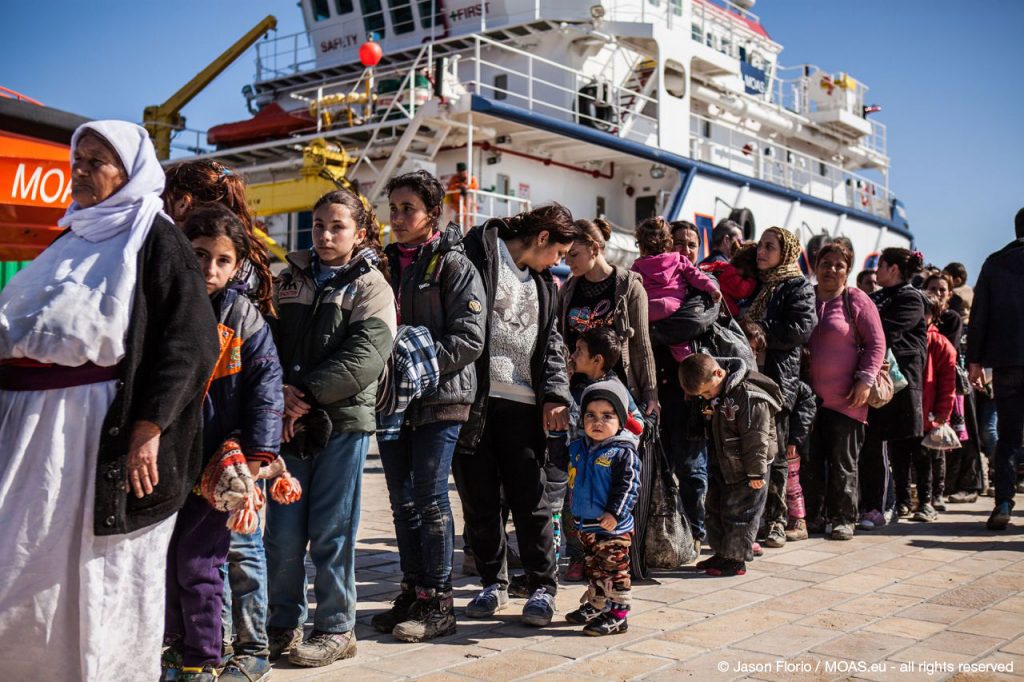
Finché i migranti saranno costretti a rischiare la vita in cerca di quella pace e sicurezza che noi diamo per scontate, MOAS sarà lì per salvarli.
Per combattere il traffico di esseri umani, dobbiamo svuotare i viaggi della morte in cui perdono la vita bambini, donne e uomini usando vie legali e sicure.
La pace e la sicurezza non sono il privilegio di chi ha la fortuna di nascere nel posto giusto del mondo, ma un diritto umano fondamentale e negandolo agli altri lo neghiamo a noi stessi.
Ho concluso l’intervento con una storia a lieto fine: la storia di Noura.
Noura è una ragazza siriana di 28 anni che viene da un paese intorno a Damasco, era insegnante di inglese ed aveva una vita felice fin quando la guerra non l’ha travolta costringendola a fuggire. Noura è stata costretta ad abbandonare il suo paese con i genitori, il fratello gemello e la cognata. Dopo varie peripezie, Noura si era imbarcata su un gommone nel Mar Egeo e proprio in quel tratto di mare è stata reuperata con l’intera famiglia dal team MOAS. Finalmente nel Febbraio 2016 è arrivata a Saarbrücken dove sta ricostruendo la sua nuova vita lontano dalle bombe e dalla guerra.
